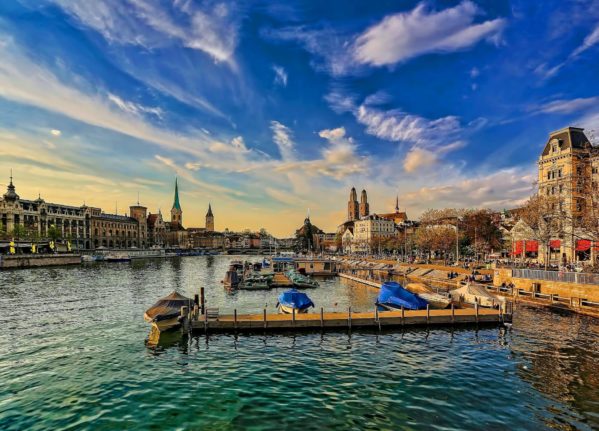What’s the €200 energy payment and who’s it aimed at?
Since the start of the war in Ukraine, energy prices have been rising sharply, driving up the cost of heating bills and everyday goods and putting a strain on low-income households.
In a series of relief packages last year, the government doled out financial aid for everyone from employees to pensioners – but so far, students have been kept waiting.
But, according to the Education Ministry, help is finally on its way. Since March 15th, students and people taking vocational courses have been able to apply for a €200 payment to help with the higher cost of living.
The government says that pretty much all of the 2.95 million students in Germany can apply for the payment – including doctoral students, part-timers and people taking a semester of leave. It also doesn’t matter if you’re working on the side and have also received other relief payments – like the €300 employee lump sum that was paid out last September – or if you’re doing vocational training.
The key criteria to be aware of is this: if you were registered at a university or tech college on December 1st, 2022, you’ll be eligible for the payout.
Sounds great. How can I get it?
Since the government doesn’t have a centralised database with info on students in Germany, there’s no way for it to pay out the money automatically.
That means students will have to apply for their €200 via the Education Ministry’s new online portal. The first step is to register for a ‘BundID’ account, which you can do anytime on the einmalzahlung200.de website.
READ ALSO: German students call on government to ‘deliver’ on €200 energy payout
Here’s where it gets slightly trickier for foreigners, as you either need an activated electronic ID card, electronic residence card, European electronic ID or ELSTER certificate to sign up.
While some internationals can get an electronic residence title, you generally have to get this activated at the Bürgeramt or Ausländerbehörde before you can use the online ID function – and this can be, to put it mildly, a bit of a painful process. Other internationals aren’t able to get an eID card in the first place, so they’re best off using an ELSTER certificate instead.

If you don’t have one of these already, you can apply for one by registering here on ELSTER – Germany’s online tax portal. After signing up, you’ll get a code via email and another code in the post, which you can use to access and download your certificate.
This can be used to log in to ELSTER in future to submit a tax return, or to sign up for a BundID account in order to apply for your energy relief payout.
What happens after I get the BundID?
After you’ve got your logins, you’ll also need a special access code, which will likely be sent to you via email by your institution. There have been reports that some students haven’t got this yet, so do contact your student union or admin department if you don’t think you’ve received your code.
Once you’ve got this, you’ll need to log in with your Bund ID and access code, pick the state you live in and simply provide your details – which can usually be transferred automatically from ELSTER but can also be entered manually. This part is pretty simple: they’ll ask for you name, date of birth, address and bank details. It can be done in either English or German.
Then you’ll need to tick what feels like an endless number of disclaimers to confirm you were a student in December last year and that you’re only applying for the energy payout once.
Unfortunately, the Education Ministry still hasn’t given a date for actually paying out the money, but we expect this will take at least a few weeks. We’ll keep you updated once we hear more.
READ ALSO: Studying in Germany: These are the words you need to know





 Please whitelist us to continue reading.
Please whitelist us to continue reading.
Member comments